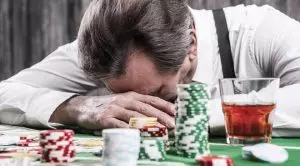 New major research has been released to study the impact that the Covid-19 lockdown has had on the UK gamblers’ behaviour, including the behaviour of individuals who are part of so-called “high risk” groups.
New major research has been released to study the impact that the Covid-19 lockdown has had on the UK gamblers’ behaviour, including the behaviour of individuals who are part of so-called “high risk” groups.
The project is carried out in collaboration between the Universities of Stirling and Glasgow. It is set to study and analyse the effect that the restrictions imposed during the coronavirus pandemic had on young adults and sports punters. In addition, the research is to also focus on the marketing and advertising of gambling companies’ products during the period of social isolation and its effects on British residents.
As revealed by the researchers, the 18-month project is funded by the Economic and Social Research Council. It has been rolled out as part of larger research released to respond to Covid-19 and will be jointly led by Dr Heather Wardle of the University of Glasgow, and Dr Nathan Critchlow and Professor Kate Hunt from the Institute for Social Marketing and Health (ISMH) in Stirling. Several other scientists from both institutions and from the University of Edinburgh are also part of the team of researchers.
As revealed by Professor Hunt, the new study is aimed at addressing three major questions: what effect has the coronavirus pandemic had on gambling practices and some risk factors; how have high-risk groups changed their experiences and gambling practices; and what effect has the Covid-19 lockdown had on gambling advertising and marketing.
Covid-19 Impact on High-Risk Gamblers Will Be Studied Considering Various Factors
 Professor Hunt also reminded that about two million people on the territory of the UK are either classified as gambling addicts or face some kind of gambling-related harm. The restrictions that were implemented because of the coronavirus pandemic on all aspects of British people’s lives, including their gambling habits, along with the postponement or cancellation of all major sports events, have brought changes to the gambling landscape not only in the country but also worldwide.
Professor Hunt also reminded that about two million people on the territory of the UK are either classified as gambling addicts or face some kind of gambling-related harm. The restrictions that were implemented because of the coronavirus pandemic on all aspects of British people’s lives, including their gambling habits, along with the postponement or cancellation of all major sports events, have brought changes to the gambling landscape not only in the country but also worldwide.
Taking into account the concerns of various anti-gambling campaigners that the Covid-19 shutdown could end up with an increase in the number of people who gamble online, the researchers said they intend to consider how risk factors, including, financial problems, social isolation and loneliness, anxiety, stress and boredom, may have affected local residents during the lockdown. Apart from that, the analysts will also study the gambling opportunities that have remained practically unaffected by the restrictions, such as online casino and slot games, e-sports and virtual sports events, all of which are usually associated with high gambling addiction rates.
As mentioned above, the researchers will also try to find out how gambling behaviours change as the lockdown measures are being relaxed, including at the time when major sports events are resumed.
The researchers plan to conduct surveys with young people between 16 and 24 years of age and sports bettors. They will also carry out interviews with people who are experienced gamblers, including ones who are classified as high-risk gamblers. Advertising and marketing activities of gambling operators will also be assessed.
- Author


